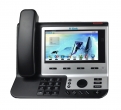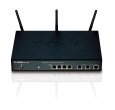- Wireless Browse Wireless Categories:Array
- Switches Browse Switches Categories:Array
- IP Surveillance Browse IP Surveillance Categories:Array
- Storage Browse Storage Categories:Array
- VoIP Browse VoIP Categories:Array
- Security Browse Security Categories:Array
- Structured Cabling Browse Structured Cabling Categories:Array
D-Link Reinforces Support of World IPv6 Launch Day
June 5, 2012Certified IPv6-ready equipment ensures maximum future compatibility for forward-minded businesses, ISPs and their customers
D-Link has reaffirmed its commitment to the switch to the new IPv6 standard and support for World IPv6 Launch Day on June 6, 2012.
The day is a global event that marks the official transition from IPv4 to IPv6, when Internet service providers (ISPs), home networking equipment manufacturers and web companies around the world permanently enable IPv6 for their products and services.
Based on the success of the World IPv6 Day test last year, thanks in part to the efforts of D-Link, the Internet Society (ISOC) has decreed that the IPv6 standard is now set to go live permanently. At midnight Coordinated Universal Time (UTC) on 6 June participating website operators will enable IPv6 connectivity persistently. Participating network operators and ISPs also need to commit that one per cent of their subscribers will be enabled for IPv6 Internet accessibility. These guidelines provide an incentive for vendors, ISPs and their customers to upgrade and enjoy the benefits extended by IPv6 connectivity.
D-Link is supporting the launch event with several customer premise equipment (CPE) routers certified for use over IPv6 ready networks on launch day. There are currently more than 31 D-Link CPE devices certified with the IPv6 Ready Logo. All present-generation consumer routers support dual stack and v4/v6 tunnelling mechanisms. Furthermore, several D-Link IP surveillance cameras and wireless PowerLine models are IPv6 certified – making them the world's first IPv6 Ready PowerLine AP and PowerLine router.
"With available IPv4 addresses rapidly running out, the sooner mass migration to IPv6 gets underway, the better. We are passionate about ensuring that consumers and businesses are ready for the switch. D-Link is actively encouraging enterprises and consumers to adopt certified technology so they are prepared for a successful transition," said Harrison Albert, Regional Director at D-Link Middle East & Africa.
Having supported IPv6 since 2006, D-Link is one of the major networking vendors actively promoting the new Internet Protocol and is the first major networking equipment vendor to pass UNH-IOL interoperability testing in late 2011. This makes D-Link a model partner for enterprises that want to be fully prepared for the imminent conversion. Most recently, D-Link has worked to combine IPv6 readiness with contemporary technologies like 802.11ac and IEEE 1905.1 for maximum forward compatibility and connectedness. All new D-Link routers now ship with the 'IPv6 Ready Phase II' certification and logo.
For more information, please visit http://www.dlink.com/ipv6 .
###
Notes to Editors:
Key D-Link Models Supporting IPv6
- DIR-652 - Gigabit Home Router (Hardware Revision B1)
- DIR-653 - Wireless N300 Gigabit Home Router
- DIR-645 - Whole Home Router 1000
- DIR-655 - Xtreme N Gigabit Router (Hardware Revision B1)
- DIR-825 - Xtreme N Dual Band Gigabit Router (Hardware Revision C1)
- DIR-835 - Wireless N750 Dual-Band Router
- DHP-1565 - Wireless N PowerLine Gigabit Router
Benefits of IPv6
- Automatically IPv6-ready: Your network automatically covers both IPv4 and IPv6 standards to support legacy products--an existing laptop or set-top box--as well as new devices with an IPv6 address.
- Enhanced network security: Qualified routers can be enabled for enhanced network security.
- Increased network speeds and accessibility: As Web sites start to offer content over IPv6 and ISPs deploy IPv6 service, an IPv6-compliant router offers faster connection speeds and provides access to Web sites and applications that have transitioned. With its better design, IPv6 has integrated quality of service, so traffic is classified by voice, video, and data, and transported accordingly, resulting in faster network speeds.
- Simplified network management: Under the IPv6 protocol, communication between each client on a network is simplified without the need to maintain address schemes or split up the limited number of IPv4 addresses; now all fixed and mobile devices including cell phones can be transported on a single common network.
- Continued connectivity to the Web: IPv6-ready routers ensure continued support and connectivity to the Internet, even after the IPv6 address scheme transitions.
- IPv4 communication with IPv6: Each ISP will handle communication between IPv4 and IPv6 networks in its own manner. However, D-Link's IPv6-certified routers will seamlessly support each communication method without requiring interaction from users.

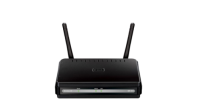
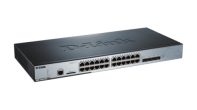
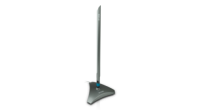
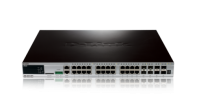
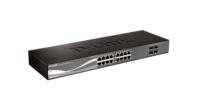
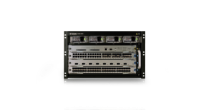
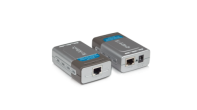
.jpg)


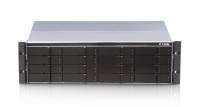
.jpg)
.jpg)
